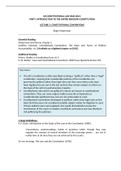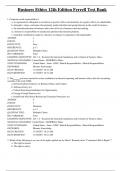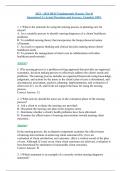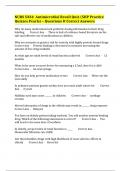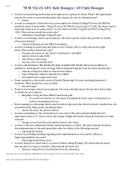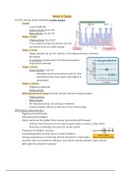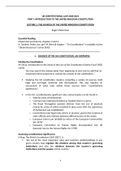Lecture notes
Lecture notes UK Constitutional Law Constitutional and Administrative Law, ISBN: 9781292144252
- Module
- UK Constitutional Law
- Institution
- Durham University (DUT)
This document contains lecture notes issued by law Durham University professor Roger Masterman. This document contains information regarding different conventions of constitutional law within the UK.
[Show more]
